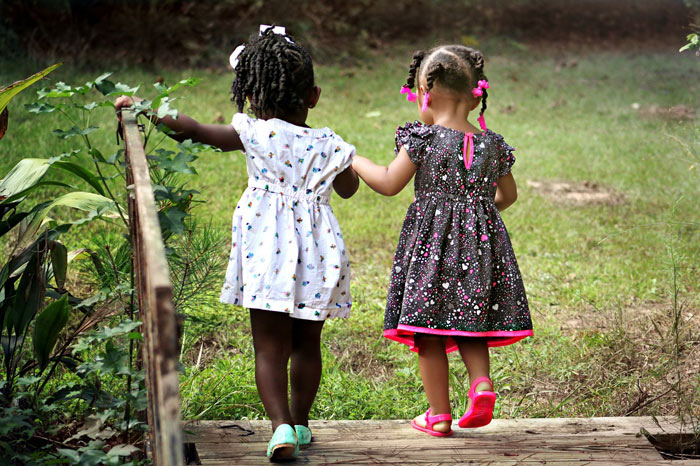How to Help Your Toddler Make Friends?
As your little descendant grows up, the time comes when they need to socialize with their peers – which is not always an easy thing to do. Unless your tyke is born with loads of charisma, you may have to render some assistance towards making them popular within their social stratum. Naturally enough, any mum would be happy to know that her child has pals all over the neighborhood, but that doesn’t happen by itself. Their behavior is not yet honed to social perfection, their conversational possibilities are limited, even though those they will be addressing won’t be very critical. Besides, up to the age of about two children are apt to function in the parallel mode, meaning that when in a company they are usually intent on what they are doing without involving others into their games.

Now interactivity in the sandbox leading up to striking friendships will hardly spring up unprompted. Clearly, adults have to step in and prod kids along a bit. Do they know how to set about it? Some guideline will surely come in handy. You will find five initial steps here.
Move slowly
Don’t go for big groups, with too many kids around your tyke will surely feel overwhelmed. Let them imbibe the different atmosphere and energy of interacting with one playmate at the beginning. They will be learning to socialize little by little instead of just adding to the overall commotion if there are many mates about. You won’t be able to control and direct the activities in this case. Also, fix your kid’s social events for the time of day when the munchkin is happy and well-fed (it is usually morning). Don’t plan them for too long, so the children won’t grow tired – not much longer than an hour.
Take a good look around
Some of your kid’s prospective pals can easily be found in the vicinity – and your bambino will react better to somebody who they are already familiar with. Consider all the kids of the same age you often come across on the block or in the park. Buddies can be found in classes or groups you attend, see if your child shows an interest in someone you meet there. Try and learn about other kids’ interests and draw in those who are fond of doing the same things as your child.
Stay in
A toddler can hardly handle a playdate through, so both parents will have to join their tykes on the floor and direct the little ones along. Maintain a friendly conversation with the other mommy so your kid will hear the interaction and will assume it as a basis for imitation later. Model decent play behavior with the view towards it – show how to ask for a toy politely, offer goodies. And, of course, interfere immediately once a brawl starts.
Make sure there is plenty of everything
Infants do not share their toys happily even if they know and like the other kid, so see to it that there are enough toys, cars, dolls, pencils, and paper to avoid arguments over items. When you go out to a playground choose one where there is a large choice of possibilities – swings, slides, climbing gear, so on. Give the toddlers a chance to investigate new apparatuses together and then move on to the next one instead of having them bickering over a favorite toy.
Curb your anticipation
Pressing your minor into an unwelcome social function with somebody they don’t hit it off with will leave them resistant and bad-tempered and you disappointed. Don’t think in terms of obligations and don’t hesitate to stop the playdate if it doesn’t come along smoothly. Things don’t have to fall into a pattern any time we want it. Friendships don’t grow out of pressure; what you are supposed to do is create a conducive atmosphere and facilitate the interactivity, the rest is to happen naturally. Let the pleasures of playing together with a pal dawn on your youngster gradually as they are moving along at comfortable speed.
